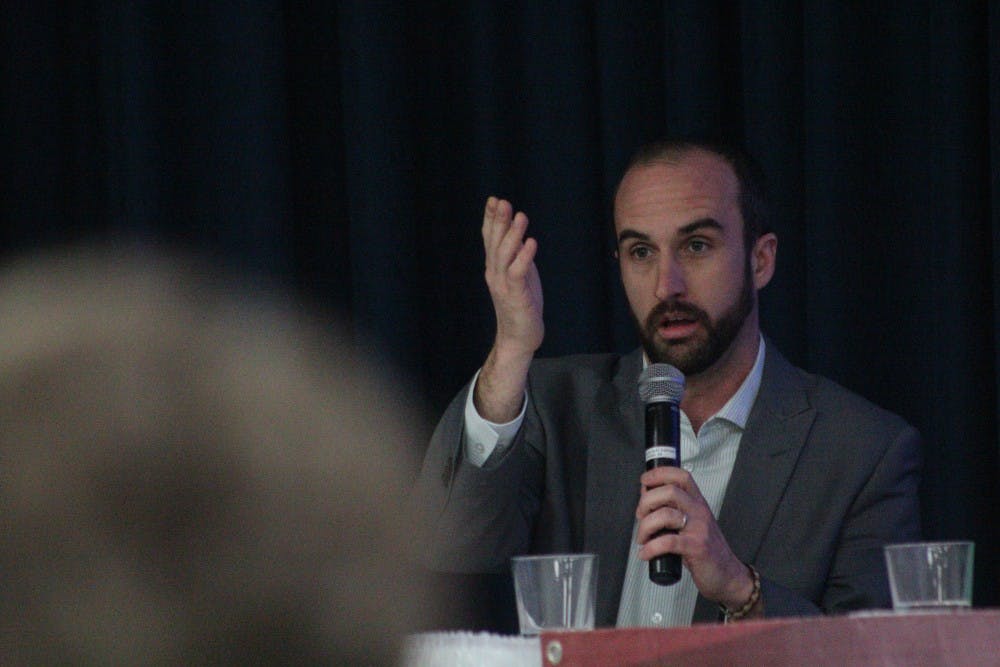Racism and police brutality led discussion of student forum

One of the main questions posed to both the audience and the five panelists during the Speak Up Speak Out forum on Wednesday night was whether racism within the police force is an individual or institutional problem.
"This is the institutionalized era where everything (racism) is in places that we can't see," said Donovan Watts, a panelist at the event.
Students and Mount Pleasant citizens filled all of the seats in the Bovee University Center auditorium to learn and discuss the issue of racism and police brutality within communities across the nation.
For many students, the forum was a tool to help further their understanding of these problems.
Grand Rapids junior Jon Kelly said this was his first time attending a SUSO forum. He said he heard about it because his professor was facilitating the event.
"It’s unfair," Kelly said. "Citizens shouldn’t be racially profiled just because others perpetuate their personal beliefs on them."
Okemos sophomore Jerald King said everyone has a duty in educating themselves on these matters.
"I think it’s something everyone should try and focus on a little bit more instead of just putting it on the back-burner," King said. "Your average students probably doesn’t know a lot about the racial tension that’s going on; at least that’s what it feels like in our (residence) hall. I’m just coming here to educate myself a little more and hopefully bring that back to anyone that wants to learn."
Other students like Southfield freshman Aleya Evans came into the forum ready with notions to share with others.
"People act like racism a new thing and it's not," Evans said. "Some people are subconsciously racist. It's not on purpose. There are people going into police academies who have never been in minority groups, so when they see a black man or a Latino man, they only know what they've been told, not what they've experienced."




